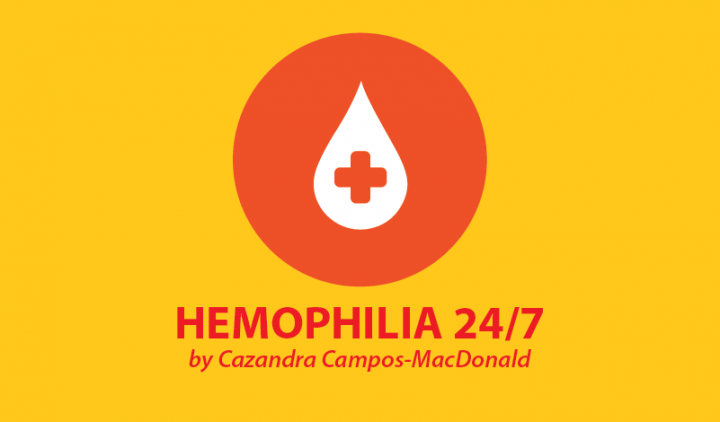Let’s End the Game of Comparisons With a Little Love
Written by |

Rap sessions are common at bleeding disorder conferences. During these group discussions, people come together to talk about similar interests, such as a new diagnosis in the family, inhibitors, or what it’s like being a hemo parent. Facilitators help the participants ask questions of one another and have meaningful discussions. It is a wonderful way to get new ideas and meet others who are dealing with similar issues as you.
But at one conference, I was surprised at the approach that some participants took toward the discussion. For example, when one woman said her son was on his second port-a-cath, another responded that her own child was on his third. Yet another added that her son was on his fourth port. I wondered if these women were trying to see whose son had the most ports. It was as if with each example, they were calling a bet and raising the stakes of a game.
I found this game of comparisons to be a little humorous, yet also heartbreaking. When playing the game of “Whose Child Is Sicker?” no one wins.
For families dealing with hemophilia, it can seem that the world revolves around chronic illness, and that the only language spoken is used to describe bleeds, ports, hospitals, and factor treatment. I think that if parents and caregivers wore a badge explaining to the world that they exude both the compassion and the frustration of living with a bleeding disorder, perhaps others would show them some understanding and offer them acceptance. Maybe someone in the checkout line at the grocery store would notice. Perhaps someone else might look into their eyes and share a moment of mutual appreciation.
I believe that those who try to play the comparison game when dealing with an illness are actually hurting inside. If they are a caregiver, they may want others to know they are working hard. Perhaps they need to be seen because they feel alone.
If they are a patient, maybe they need to know that others recognize how their illness affects them. They also might need to feel seen, because perhaps they think they’re the only ones in the world living through an illness. They might need someone else to understand what they are going through because they feel alone.
Walking the path of chronic illness can be rough. There are bumps in the road, as well as sharp turns and even potholes. The journey is filled with the unexpected, and each person travels the road as best as they can.
Caregivers and patients have different needs along the journey, but they long for some of the same things: to be seen, to be heard, to not feel alone, and to be loved.
Sometimes the friends and family members of patients can’t understand the chronic illness journey. They can feel at a loss when they’re unable to help the ones they love. If people who support others living with a chronic condition could remember one thing — love — then everything else would be figured out.
Love conquers all.
***
Note: Hemophilia News Today is strictly a news and information website about the disease. It does not provide medical advice, diagnosis, or treatment. This content is not intended to be a substitute for professional medical advice, diagnosis, or treatment. Always seek the advice of your physician or another qualified health provider with any questions you may have regarding a medical condition. Never disregard professional medical advice or delay in seeking it because of something you have read on this website. The opinions expressed in this column are not those of Hemophilia News Today or its parent company, Bionews, and are intended to spark discussion about issues pertaining to hemophilia.



David Clark
Good article. Another similar debate we see too often is A vs. B, which is worse? I always wonder who is the winner - the one with the worse disorder or the one with the milder one? Humans are funny.